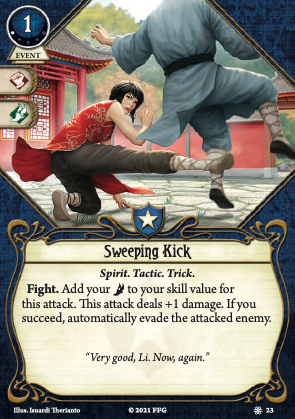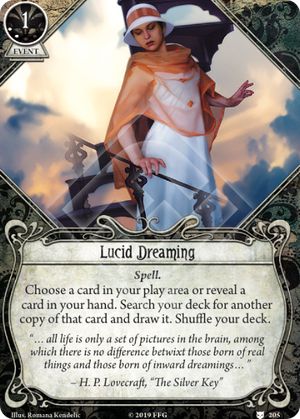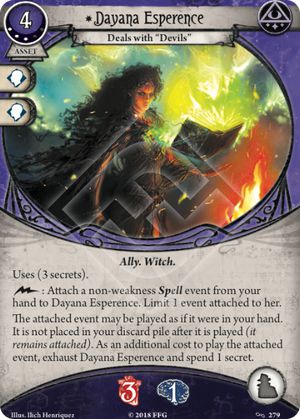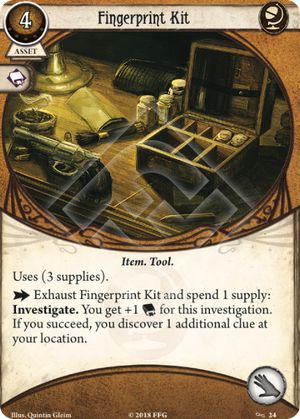
Rita, Nathaniel, Calvin, there had been several investigators mentioned, who might be interested in this card, and probably rightfully so. Personally, I got it in Tony playing the "Web of Dreams" campaign, and even though there is no particular synergy with him, I was still very pleased of this card. I think, it might as well be a good card for any investigator, who can take it. With 1 XP and 1 resource, it's reasonable cheap for an event, that can attack for 2 damage and evade even bosses for one action.
However, now that I think of it, there might be somebody else, who gets extra mileage out of this card: Zoey Samaras
If she has her Cross out, she can do one damage while engaging, sweeping kicking disengage it again, dealing another 2 damage. And then in upkeep phase, when the cross and the enemy ready, deal an additional damage to it. That's basically 4 damage in one action, not counting additional damage from Vicious Blow, Beat Cop, what have you. You could also say, this card doubles the damage output of the cross on an enemy without requiring any additional action. (Assuming, you don't fail the test.) Of course, it will exhaust the cross for the complete next round in advance, so you might miss its ability then on some other foe. But it's dubious, if you will even get that new enemy, you could profit from the cross again, so if it saves you a complete action, or 1 point of health on your Beat Cop, etc., that's still a synergy to look out for. Sure, her is not great, she only attacks with a base of 6 on this card, but with some static boost and commits, she certainly has no hard time using it. It's still 1 base skill better than most level 0 weapons, and they are certainly not unplayable for her.




